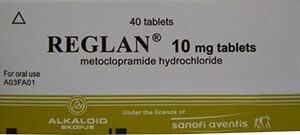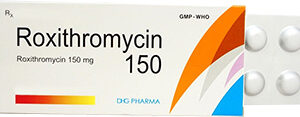Zantac (generic name: ranitidine) is a medication that belongs to a class of drugs known as H2 blockers. It is primarily used to reduce the production of stomach acid and to treat conditions such as gastroesophageal reflux disease (GERD), ulcers, and heartburn. Zantac works by blocking histamine receptors in the stomach, which helps to decrease the amount of acid produced.
Zantac is available in various forms, including tablets, capsules, and oral solutions. It can be taken with or without food, and the dosage may vary depending on the specific condition being treated.
Warnings
Zantac should not be taken if you are allergic to ranitidine or any other ingredients in the medication. It is important to inform your healthcare provider about any known allergies before starting Zantac.
Patients with a history of acute porphyria, a rare metabolic disorder, should also avoid taking Zantac.
Furthermore, it is important to consult your doctor if you have any of the following conditions:
- Impaired kidney or liver function
- Porphyria
- A history of gastrointestinal bleeding
- Any other medical conditions or concerns
What to Expect When Taking Zantac
Like any medication, Zantac may cause certain side effects. Common side effects of Zantac include headache, dizziness, and diarrhea. These side effects are usually mild and temporary, but if they persist or worsen, it is important to seek medical attention.
In rare cases, Zantac may cause more serious side effects, such as an allergic reaction, liver problems, or a decrease in the production of blood cells. If you experience any unusual symptoms or side effects while taking Zantac, it is crucial to contact your healthcare provider immediately.
Taking Zantac Safely
It is essential to follow the prescribed dosage and instructions for taking Zantac. Take the medication as directed by your healthcare provider to ensure maximum effectiveness.
If you miss a dose, take it as soon as you remember. However, if it is close to the time of your next scheduled dose, skip the missed dose and continue with your regular dosing schedule. Do not take a double dose to make up for the missed one.
In the event of an overdose, seek emergency medical attention. Symptoms of an overdose may include confusion, dizziness, rapid heartbeat, and difficulty breathing.
Zantac and Other Medications
Zantac can interact with certain medications, potentially affecting their effectiveness or increasing the risk of side effects. It is crucial to inform your healthcare provider about all the medications you are currently taking, including prescription drugs, over-the-counter medications, and herbal supplements.
Some medications that may interact with Zantac include:
- Antacids
- Warfarin (an anticoagulant)
- Proton pump inhibitors (PPIs)
- Nonsteroidal anti-inflammatory drugs (NSAIDs)
- Theophylline (used to treat asthma)
Your healthcare provider will be able to determine if any adjustments to your medication regimen are necessary to avoid potential interactions.
Questions and Answers for Zantac
-
Can I take Zantac with antacids?
Yes, Zantac can be taken with antacids. However, it is recommended to take them at least 1 hour apart to prevent any potential interactions.
-
How long does it take for Zantac to start working?
Zantac typically starts working within 30 minutes to an hour after taking it. The maximum effect is usually reached within 2-3 hours.
-
Can I drink alcohol while taking Zantac?
While moderate alcohol consumption is generally considered safe, it is advisable to limit alcohol intake while taking Zantac. Alcohol can increase the production of stomach acid, which may counteract the effects of the medication.
-
Can I take Zantac during pregnancy?
It is important to consult with your healthcare provider before taking Zantac during pregnancy, as it falls into category B of the FDA’s pregnancy risk classification system. While studies have not shown significant risks, it is essential to weigh the potential benefits against any possible risks.
-
Can Zantac be taken by children?
Zantac is generally safe for children when prescribed by a healthcare provider. The dosage will be determined based on the child’s weight and specific condition. It is crucial to follow the instructions provided by the healthcare provider and consult them for any concerns.






Reviews
There are no reviews yet.